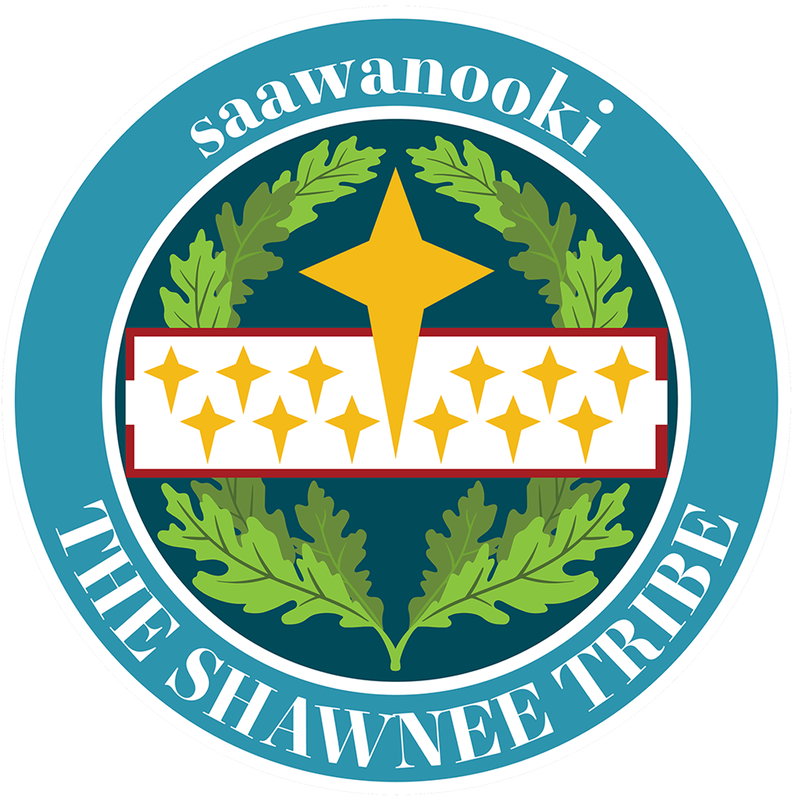|
Tulsa, Okla. – (August 7, 2023) – The Laureate Institute for Brain Research (LIBR) in Tulsa, OK has received funding through the prestigious National Institutes of Health (NIH) Director’s Pioneer Award (DP1 Mechanism) for an innovative collaborative research project “Kipiyecipakiciipe - Coming Home” between the LIBR and the Shawnee Tribe. The research will be led by Dr. Evan J. White, Principal Investigator and Director of Native American Research at LIBR. This partnership, which is supported by a $5.9 million, five-year NIH DP1 grant (DP1DA058986), aims to establish clinical cultural neuroscience as an indispensable tool in community-driven research to reduce substance misuse and disorder.
The goal of the project is to address substance use problems that impact Native American people at higher rates than the general population. “Being involved in traditional ways of life has many benefits, and research shows that reducing and preventing substance use is one benefit,” said White. “Our goal is to use modern clinical neuroscience to help understand the way this impacts the brain to promote substance use recovery and prevention.” The project will combine two important approaches: involving the community to consider cultural perspectives and knowledge; and using neuroscience to understand brain processes relevant for substance use disorders. “By combining these approaches, the project aims to make progress in reducing the disparities in substance use problems and understanding how the brain is involved in addiction and recovery,” added White. To do this, the project will work closely with the Tribe, using brain imaging techniques to study how cultural engagement affects the brain and its relationship to substance use. “The Shawnee Tribe will help to define what cultural engagement means for the community,” continued White. “This is important because culture is a complex concept that includes many aspects of people's lives. There is deep cultural knowledge in communities about well-being and living a healthy life. In my view, our job as researchers is to use our scientific toolkit to translate this knowledge into data and information that can be used by medical policymakers and providers to promote wellbeing in Native communities.” As the Shawnee Tribe builds its Behavioral & Mental Health Department, tribal leadership hopes to ensure Shawnee cultural knowledge and practices play a central role. A key component of this collaborative research project is a Community Advisory Board comprising Shawnee citizens and ceremonial leaders; the board will inform and oversee Dr. White & LIBR’s research process. “Shawnee folks deserve Shawnee ways of healthcare,” said Chief Ben Barnes. “I think it’s imperative that our cultural knowledge be the bedrock of any health and human services we provide to our people. We’re extremely fortunate to have experts like Dr. White as one of our own, and I can’t wait to see what his research unravels for not only our nation but Indian Country and healthcare in general.” Dr. Evan White is an enrolled Absentee Shawnee citizen with Eastern Shawnee and Shawnee Tribe ancestry on his paternal grandmother’s side. He is also a devoted husband and father to two young children, a Shawnee Language Immersion Program student, and actively involved at the White Oak ceremonial grounds and in the Native American Church of Oklahoma. The funding program to which Dr. White’s team at LIBR applied—the NIH Director’s Pioneer Award mechanism—seeks to identify scientists with high-impact ideas that may be risky or at a stage too early to fare well in the traditional peer review process. The mechanism is designed to support a small number of investigators of exceptional creativity who propose bold and highly innovative research approaches with the potential for high impact on significant problems in any area relevant to NIH. Depending on funding, approximately 7 applications are expected to be funded each year. During the years 2018-2022, the success rate for applicants was 4.5%. “The project’s results will provide valuable information on how cultural factors can protect against substance use problems. It will also serve as a model for studying cultural factors in other minority groups, and social determinants of health broadly with the goal of improving health for everyone,” commented White. The research team will be led by principal investigator Evan J. White, Ph.D., Principal Investigator, Director of Native American Research, Director of Electroencephalography Core at LIBR and Research Associate Professor in the Oxley College of Health Sciences at The University of Tulsa. Kyle Miller, Director of Behavior and Mental Health, will be the lead investigator from the Shawnee Tribe and primary liaison between the LIBR team and the Community Advisory Board. Dr. White’s research for this project will continue through mid-2028. News and outcomes from the study will be published online through the National Institutes of Health’s RePORTER tool. Scan here to see “Kipiyecipakiciipe – Coming Home” on RePORTER: [QR code to https://reporter.nih.gov/search/NWnyJ1uLq0qH2IJPRzZBdg/project-details/10740237] “Kipiyecipakiciipe - Coming Home” is supported by the National Institute on Drug Abuse of the National Institutes of Health under Project Number DP1DA058986. The content reported in this publication is solely the responsibility of the authors and does not necessarily represent the official views of the National Institutes of Health. ### CONTACT: For more information about the project, contact Evan J. White, Ph.D. at Laureate Institute for Brain Research at [email protected]. ABOUT LAUREATE INSTITUTE FOR BRAIN RESEARCH (LIBR) Launched in 2009, the Laureate Institute for Brain Research (laureateinstitute.org) is home to a multidisciplinary team of scientists and clinical research staff who apply neuroimaging, genetic, pharmacological, neuropsychological and psychotherapeutic methods to investigate the neurobiology and treatment of psychiatric disorders. LIBR’s creation was supported by The William K. Warren Foundation for the purpose of conducting studies aimed at developing more effective treatments and/or prevention strategies for these disorders. The studies are led by scientists from diverse backgrounds, including psychiatry, psychology, physics, cognitive neuroscience, developmental neuroscience, population neuroscience and genetics, molecular and cellular neurobiology, and computer science. ABOUT THE SHAWNEE TRIBE The Shawnee Tribe is a sovereign nation of more than 4,000 citizens living across North America and abroad. Tribal headquarters are located in Miami, Oklahoma. For more information, visit shawnee-nsn.gov.
0 Comments
Your comment will be posted after it is approved.
Leave a Reply. |
Archives
July 2024
Categories
All
|
VISIT LIBR6655 South Yale Ave. Tulsa, OK 74136
918.502.5100 | [email protected] |
|
© 2009-2024. All Rights Reserved. Laureate Institute for Brain Research
Site powered by Laureate Institute for Brain Research



 RSS Feed
RSS Feed